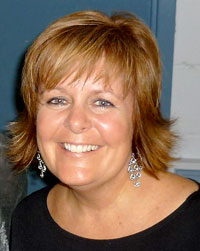Death Over Dinner
Lisa Henderson says a trend to hold “death-over-dinner” events where family members discuss
issues surrounding death and dying, is a good one that needs to go viral…
Formerly taboo questions like; does your mother or father want to die at home; would they want a feeding tube; what happens to a couple’s children if they both die in a car accident are finally being asked, and it’s about time says the co-owner of Hillcrest Funeral Home. Lisa says she and her husband Mark see these questions go unanswered, often until it’s too late, leaving family members second guessing what their loved one would have wanted.
A Peaceful Passing or Co-lateral Damage in the War on Illness and Dying?
Does your mother or father want to die at home? Would they want a feeding tube? What happens to your children if you die in an accident along with your partner?
These questions and many more are resonating with baby boomers as they deal with the passing of their parents and come face-to-face with their own mortality.
“How we end our lives is the most important and costly conversation we are not having. This is a conversation that the entire country needs to be having, and we strongly believe it is a conversation that people are ready to have.” That’s according to website deathoverdinner.org – an organization dedicated to promoting conversations about how we prepare for our final days and to lifting the taboo around talking about death.
Its stated goals – to head off family conflicts over finances and medical care – and to avoid unnecessary suffering at the end of life. The website takes people step by step through the process of planning and holding a death-over-dinner evening and is designed to confront the issues surrounding death and dying that few people like to acknowledge, let alone talk about at a dinner party.
The site’s supporters maintain if these discussions don’t take place before an illness or death takes place, family members will likely be confused and uncertain about what to do when the passing of their loved one occurs.
More than half of deaths take place in hospitals and medical facilities where doctors and patients see dying as losing the battle. In a culture that talks of “fighting” illness and “surviving” cancer,
we turn to technology for ammunition to fight these battles. Extensive interventions including the use of ventilators, feeding tubes or other life-support devices and procedures are the results – often negating any possibility of a peaceful passing into the next life.
By the numbers…
By 2030, 3.3 million Americans will die every year; up 32 percent from the current death rate as baby boomers age, according to the National Funeral Directors Association.
According to a Pew survey…
– Nearly 75% of Americans want to die at home, yet only 25% of them do.
– More than half of deaths take place in hospitals and medical facilities.
– About 70 percent of adults and 30 percent of Americans 65 and older don’t have a living will,
By 2060 – because of medical advances that keep people alive longer – the number of Americans older than 65 will more than double to 92 million.

